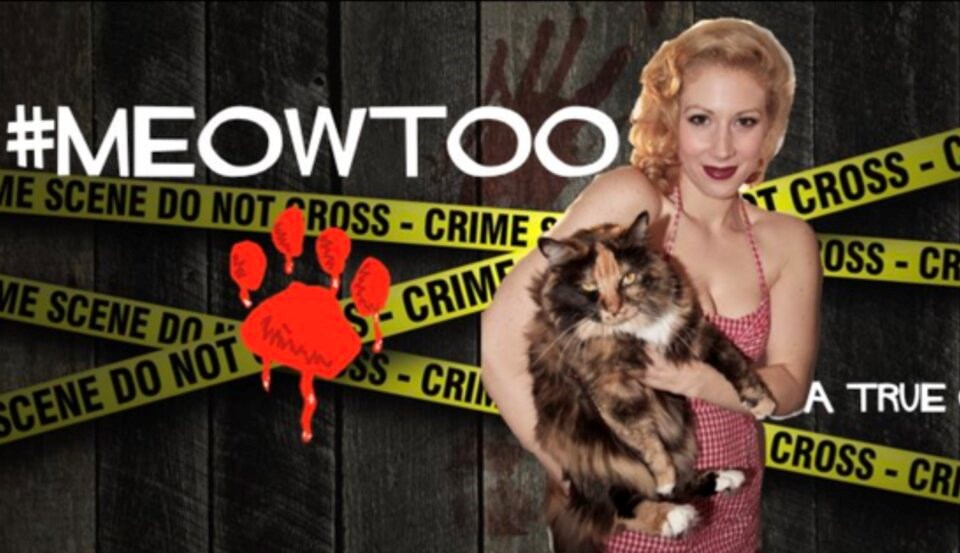World
B.C. Judge Dismisses Defamation Claim Over Cat’s Death

A British Columbia Supreme Court judge has dismissed a defamation claim against comedian Jennifer McKinney, stemming from her criticism of a Vancouver veterinary clinic following the death of her cat in April 2023. The judge ruled that McKinney’s comments are protected under the province’s anti-SLAPP (Strategic Lawsuit Against Public Participation) legislation, designed to safeguard public discourse.
The case arose after McKinney publicly expressed her dissatisfaction with the veterinary clinic where her cat was treated. Following the pet’s death due to what she described as inadequate care, McKinney took to social media and her podcast to voice her concerns. She claimed that the clinic’s treatment contributed to her cat’s demise, igniting a heated debate among pet owners and animal rights advocates.
In her defense, McKinney argued that her statements were not made with malicious intent but rather to inform the public about her experience. The court agreed, stating that her comments were a form of free speech aimed at raising awareness about the veterinary clinic’s practices. This ruling underscores the importance of protecting individuals who speak out on matters of public interest, particularly in the context of animal welfare.
The anti-SLAPP law has gained attention in recent years as a means to prevent lawsuits that seek to silence critics. The B.C. Supreme Court’s decision reflects a broader trend of prioritizing free expression in discussions surrounding professional conduct and accountability.
The Canadian Veterinary Medical Association (CVMA) has not yet commented on the ruling. However, the case has sparked discussions about veterinary practices and the responsibilities of pet owners in advocating for their animals’ health. It also highlights the growing role of social media as a platform for public commentary on professional services.
As the landscape of public discourse continues to evolve, this case serves as a reminder of the balance between protecting reputations and allowing individuals to express their opinions on issues that matter to them. The court’s ruling may encourage more people to speak out against perceived injustices without fear of retribution.
McKinney’s case is part of a larger conversation about the rights of consumers and the responsibilities of service providers. With animal welfare increasingly at the forefront of public consciousness, this ruling could have lasting implications for how veterinary clinics operate and how pet owners engage with them.
As discussions around this topic continue, the impact of the B.C. Supreme Court’s decision will undoubtedly shape future interactions between consumers and professionals in the veterinary field, as well as influence the ongoing dialogue about free speech and accountability in Canada.
-

 Politics3 weeks ago
Politics3 weeks agoSecwepemc First Nation Seeks Aboriginal Title Over Kamloops Area
-

 World4 months ago
World4 months agoScientists Unearth Ancient Antarctic Ice to Unlock Climate Secrets
-

 Entertainment5 months ago
Entertainment5 months agoTrump and McCormick to Announce $70 Billion Energy Investments
-

 Lifestyle4 months ago
Lifestyle4 months agoTransLink Launches Food Truck Program to Boost Revenue in Vancouver
-

 Science5 months ago
Science5 months agoFour Astronauts Return to Earth After International Space Station Mission
-

 Technology3 months ago
Technology3 months agoApple Notes Enhances Functionality with Markdown Support in macOS 26
-

 Top Stories2 months ago
Top Stories2 months agoUrgent Update: Fatal Crash on Highway 99 Claims Life of Pitt Meadows Man
-

 Lifestyle3 months ago
Lifestyle3 months agoManitoba’s Burger Champion Shines Again Amid Dining Innovations
-

 Sports5 months ago
Sports5 months agoSearch Underway for Missing Hunter Amid Hokkaido Bear Emergency
-

 Politics4 months ago
Politics4 months agoUkrainian Tennis Star Elina Svitolina Faces Death Threats Online
-

 Politics4 months ago
Politics4 months agoCarney Engages First Nations Leaders at Development Law Summit
-

 Technology5 months ago
Technology5 months agoFrosthaven Launches Early Access on July 31, 2025




















